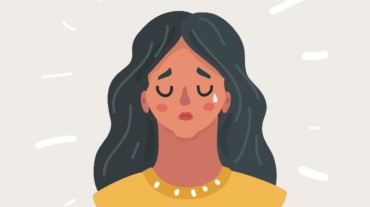
To put it in the simplest of terms, bullying is aggressive behaviour amongst school-going children. The unfortunate part is that bullying is quite common in schools even today. In fact, those who are bullies might also have been victims of bullying at some point.
Our teenage years can make us feel quite sensitive and insecure but it is only once school is over that we can acknowledge the fact that conflicts with our peers are not only quite common but also not the end of the world. Some of us, however, have had to deal with serious bullying such as name-calling, taunting, trolling over social media, inappropriate rumours and even getting physically attacked.
With such aggressive behaviour to deal with at such an early age, anyone’s mental health may suffer. Those who have been bullied often report feeling anxious and depressed due to the behaviour of their peers.

We talked to renowned clinical psychologist Dr Bhavna Barmi about the impact of childhood bullying on our mental health as adults. She said, “For individuals who are bullied, it is both sad and depressing. However, unless they have been bullied themselves, many adults have a difficult time comprehending the extent to which children can suffer. They are oblivious to the fact that bullying has serious effects that can last a lifetime.”
Talking about the mental health effects that prolonged bullying can have on children, Dr Bhavna said, “Bullied children may struggle with self-esteem as adults, have difficulties forming and sustaining relationships, and shun social contacts. They may also have difficulty trusting others, which can have an influence on their personal and professional relationships.”
It is extremely important to understand how one can deal with the trauma that childhood bullying can cause. This will not only be emotionally healing but also give way to improved mental health.

Dr Bhavna Barmi listed out 4 key ways to take active steps towards resolving negative emotions due to childhood bullying:
1. Find a support system
A support system can help you process your emotions and be a pillar of strength. Dr Barmi says, “Lean on your loved ones for support. Identify people who can help you, such as friends or relatives. If you’re ready to talk about the terrible incident, you might tell them about your feelings and experience. To reduce some of your everyday stress, you might ask loved ones to assist you with home duties or other commitments.”
2. Process your emotions, even if they’re negative
Select Topics of your interest and let us customize your feed.
PERSONALISE NOWSpeaking about the importance of confronting what you’re going through, Dr Barmi recommends, “Face your emotions. It’s natural to desire to forget about a horrible experience. However, refusing to leave the house, sleeping all day, isolating oneself from loved ones, and abusing substances to avoid reminders are not long-term healthy coping strategies. While some avoidance is natural, excessive avoidance might prolong your stress and prevent you from recovering. Gradually, reintroduce yourself to a normal schedule.”
3. Self-care is of utmost importance
You must ensure that you’re taking care of yourself, be it eating healthy meals or indulging in a favourite hobby like painting. Dr Barmi advises, “Make self-care a priority. Make an effort to eat well-balanced meals, engage in regular physical activity, and obtain a decent night’s sleep. Also, look for alternative healthy coping techniques like art, music, meditation, relaxation, and time spent in nature.”

4. Be patient
According to Dr Barmi, “Patience is required. Remember that having a strong reaction to a traumatic experience is natural. As you recuperate, take things one day at a time. As the days pass, you should notice a progressive improvement in your symptoms.”
So, if you’re someone who has experienced bullying in childhood, you must try to heal in order to improve your mental health.